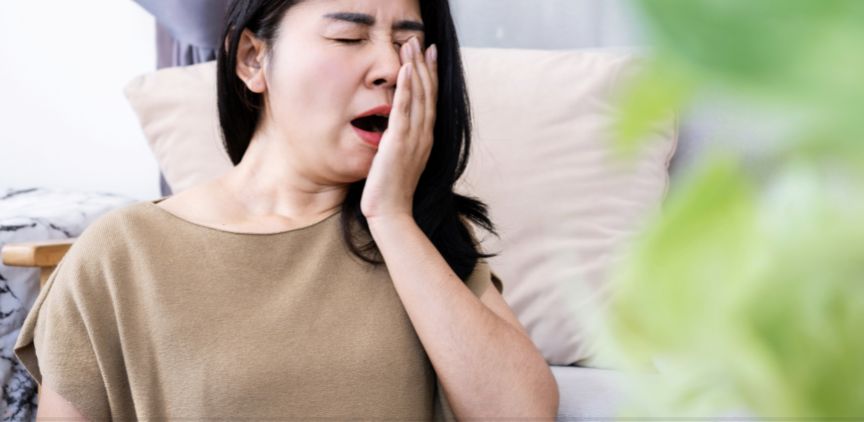Best Treatments for Sleep Disorders
Nothing puts quite as much of a damper on your day as a poor night’s sleep. Even one night of poor sleep can leave us feeling fatigued, irritable and less productive than we normally are.
1. Cognitive Behavioral Therapy for Insomnia (CBT-I)
CBT-I is often the first approach taken for those who struggle with insomnia. It is done over a 6 to 8-week period and is comprised of a combination of cognitive restructuring of your fears around sleep, relaxation and meditation techniques, psychoeducation around sleep and other skills and tools designed to improve sleep duration and quality.
2. Exercise
Regular, daily exercise can help increase sleep quality in a couple of ways. It is often recommended for those with RLS to decrease the creeping, crawling sensations in the legs. It can also help with maintaining a healthy weight and improving muscle tone, which can improve sleep apnea symptoms. Finally, regular exercise can help you feel more tired and lead to deeper sleep. If you struggle with insomnia or another sleep disorder, avoid working out 4 to 5 hours before bed as it could be too stimulating and make it harder to fall asleep.
3. Practice healthy sleep hygiene
An often overlooked treatment for sleep disorders is improving your overall sleep hygiene. These include modulating your circadian rhythm by getting bright, morning sunlight on your eyes as soon as you wake up (do not stare directly into the sun) and avoiding blue light at night. Blue light often comes from TVs, cell phones and computers and when it hits our eyes after sunset it can delay the production of melatonin, an important sleep-regulating hormone. You can use blue light-blocking glass after sunset or activate Night Shift mode, which removes blue light, on your devices.
Other helpful sleep hygiene tips include avoiding caffeine after noon, sleeping in a cool room, avoiding electronics an hour before bed, doing something relaxing to unwind such as reading or having a bath, not drinking too many liquids before sleep to limit nighttime bathroom breaks and maintaining regular sleep and wake time–the body loves a routine!
4. Try magnesium
Different forms of magnesium such as glycinate or malate, can help relax muscles, which can make it a helpful supplement to take before bed, especially if you have restless leg syndrome. It is not a cure-all, as some TikTokers might have you believe, but it can be a safe and easy addition to a healthy bedtime routine. You may want to consult with your doctor or natural healthcare provider for the proper dosage for your needs.
5. Sleep medications
If other strategies have not helped, you can talk to your doctor about medications such as benzodiazepine-receptor agonists, melatonin-receptor agonists or melatonin supplements. These medications are best prescribed by a doctor so you can fully understand the correct dosages and potential side effects. They aren’t meant to be taken long-term but can be a helpful tool for re-establishing your sleep cycle.
Common Sleep Disorders
Sleep Apnea
Sleep apnea is characterized by breathing that stops and starts multiple times throughout the night, meaning your lungs and the rest of your body are not receiving adequate oxygen. If you have this disorder it means that even if you are sleeping 7-9 hours a night, you are unlikely to wake up feeling rested. Some symptoms include:
- Waking up with a headache.
- Loud snoring.
- Breathing that stops and starts.
- Gasping for breath while you sleep.
- Waking up with a dry mouth.
- Irritability.
- A hard time staying asleep throughout the night–also known as insomnia.
If you suspect that you have sleep apnea, it is worth doing a sleep study to receive a diagnosis so that your doctor can provide support and treatment, possibly through a CPAP (continuous positive airway pressure) machine. Another optional treatment for sleep apnea is orofacial therapy, which entails learning specific exercises for your face and mouth to increase muscle tone and decrease symptoms.
Insomnia
Many of us are likely familiar with insomnia, the sleep disorder that makes it difficult to fall and/or stay asleep. This disorder can also cause you to wake up much earlier than needed without being able to fall back to sleep. Unsurprisingly, this sleep disorder can have negative impacts on focus, mood, energy and overall health.
Restless Leg Syndrome
Restless leg syndrome (RLS) is not necessarily a sleep disorder, but it can negatively impact sleep quality and duration. It is characterized by a strong urge or need to move the legs due to uncomfortable sensations that are alleviated for a short time after movement. The reason it is included here is because these sensations often start at night when sitting or lying down trying to sleep.
Hopefully, these treatments for sleep disorders such as apnea, restless leg syndrome and insomnia will help you establish and maintain a healthy sleep cycle so you can meet each day with energy and excitement!
